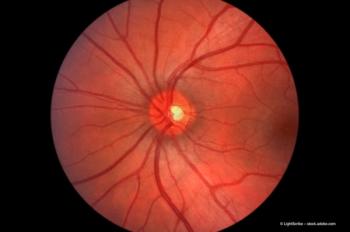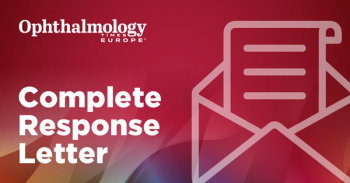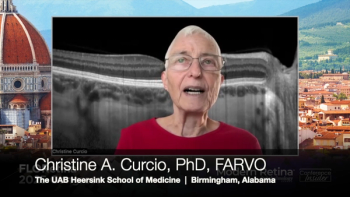
Roche’s DME candidate hits mark in 2 global Phase 3 studies
Faricimab is the focus of the YOSEMITE and RHINE studies, which investigators say show that the investigational bispecific antibody has the potential to offer lasting vision improvements for patients with diabetic macular oedema.
Roche announced positive results from 2 global Phase 3 studies evaluating its investigational bispecific antibody, faricimab, in people living with diabetic macular oedema (DME).
The YOSEMITE and RHINE studies met their primary endpoint and showed that faricimab given every 8 weeks and at personalised dosing intervals of up to 16 weeks demonstrated non-inferior visual acuity gains compared with aflibercept given every 8 weeks.
According to a prepared statement, faricimab was generally well tolerated, with no new safety signals identified. The studies each have 3 treatment arms, with participants randomly assigned to receive either faricimab or aflibercept at fixed 8-week intervals, or faricimab at personalised intervals of up to 16 weeks, following a loading phase.
“These positive results show that faricimab has the potential to offer lasting vision improvements for people with diabetic macular oedema, while also reducing the treatment burden associated with frequent eye injections,” said Dr Levi Garraway, Roche’s chief medical officer and head of global product development, in the statement. “We look forward to discussions with global regulatory authorities, with the aim of bringing this potential new treatment option to people with this condition as soon as possible.”
In a secondary endpoint, across both studies, more than half of participants in the faricimab personalised dosing arms achieved an extended time between treatments of 16 weeks at year 1.
According to the release, this was the first time any investigational medicine has achieved this level of durability in a phase III study of people with DME.
YOSEMITE (NCT03622580) and RHINE (NCT03622593) are two identical, randomly assigned multicenter, double-masked, global phase III studies, evaluating the efficacy and safety of faricimab compared with aflibercept in 1,891 people living with diabetic macular oedema (940 in YOSEMITE and 951 in RHINE).
According to the release, the studies each have 3 treatment arms: faricimab 6.0 mg administered at personalised dosing intervals of up to 16 weeks; faricimab 6.0 mg administered at fixed 8-week intervals; aflibercept 2.0 mg administered at fixed 8-week intervals.
In all 3 arms, sham injections were administered at study visits when treatment injections were not scheduled, to maintain the masking of investigators and participants.
According to the release, the primary endpoint of the studies is the average change in best-corrected visual acuity (BCVA) score from baseline at 1 year.
Secondary endpoints include safety; the percentage of participants in the personalised dosing arm receiving treatment every 4, 8, 12 and 16 weeks, at week 52; the percentage of participants achieving a 2-step or greater improvement from baseline in diabetic retinopathy severity at week 52; the percentage of participants achieving a gain of at least 15 letters in BCVA from baseline over time; the percentage of participants avoiding a loss of at least 15 letters in BCVA from baseline over time; and change in central subfield thickness from baseline over time.
In addition to the YOSEMITE and RHINE studies, the phase III Rhone-X study is investigating the long-term safety and tolerability of faricimab for the treatment of DME.
Faricimab is also being studied in the phase III TENAYA and LUCERNE studies as a potential treatment for neovascular or “wet” age-related macular degeneration (nAMD).
Newsletter
Get the essential updates shaping the future of pharma manufacturing and compliance—subscribe today to Pharmaceutical Technology and never miss a breakthrough.




























